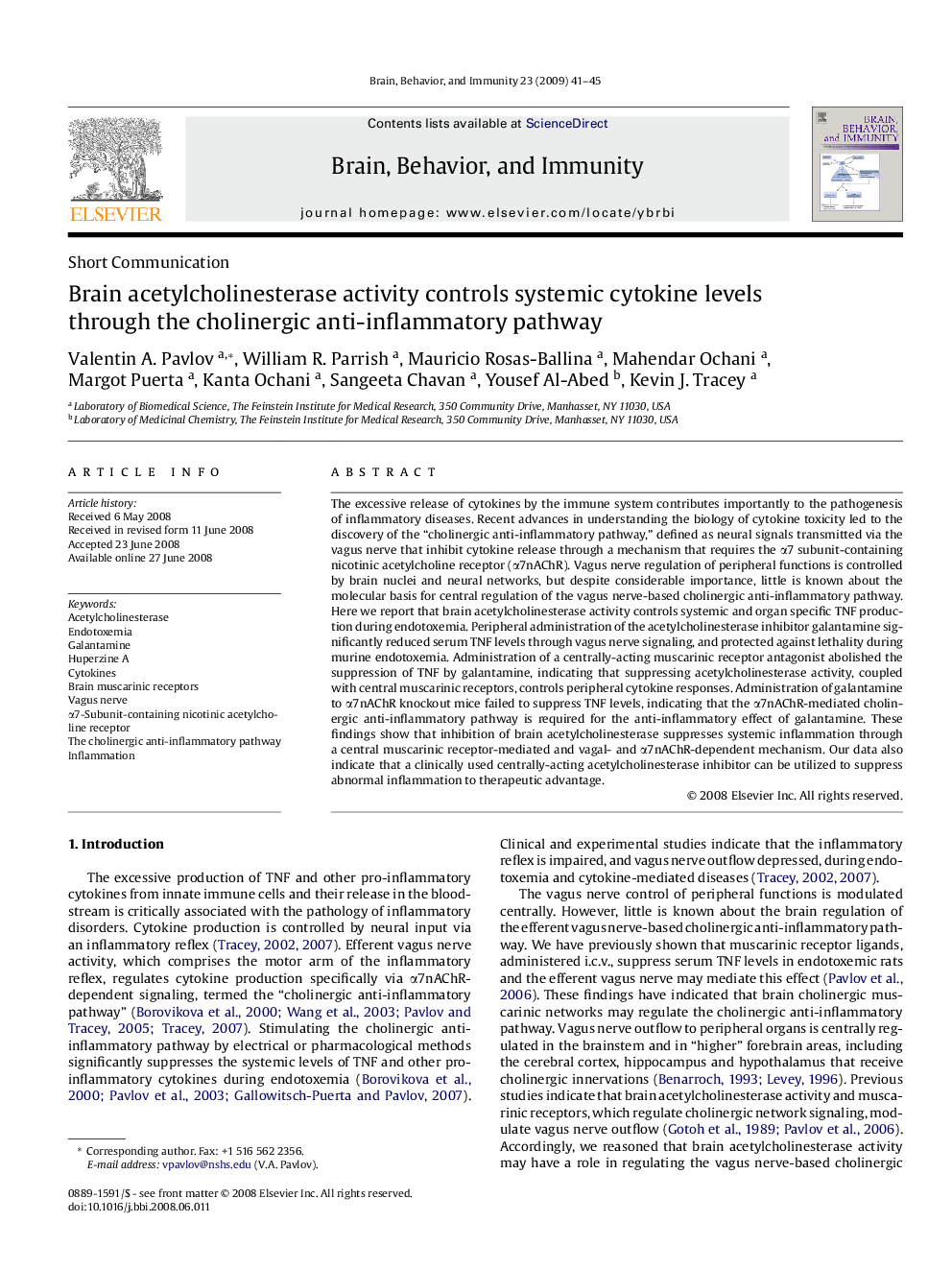| کد مقاله | کد نشریه | سال انتشار | مقاله انگلیسی | نسخه تمام متن |
|---|---|---|---|---|
| 922926 | 921061 | 2009 | 5 صفحه PDF | دانلود رایگان |

The excessive release of cytokines by the immune system contributes importantly to the pathogenesis of inflammatory diseases. Recent advances in understanding the biology of cytokine toxicity led to the discovery of the “cholinergic anti-inflammatory pathway,” defined as neural signals transmitted via the vagus nerve that inhibit cytokine release through a mechanism that requires the α7 subunit-containing nicotinic acetylcholine receptor (α7nAChR). Vagus nerve regulation of peripheral functions is controlled by brain nuclei and neural networks, but despite considerable importance, little is known about the molecular basis for central regulation of the vagus nerve-based cholinergic anti-inflammatory pathway. Here we report that brain acetylcholinesterase activity controls systemic and organ specific TNF production during endotoxemia. Peripheral administration of the acetylcholinesterase inhibitor galantamine significantly reduced serum TNF levels through vagus nerve signaling, and protected against lethality during murine endotoxemia. Administration of a centrally-acting muscarinic receptor antagonist abolished the suppression of TNF by galantamine, indicating that suppressing acetylcholinesterase activity, coupled with central muscarinic receptors, controls peripheral cytokine responses. Administration of galantamine to α7nAChR knockout mice failed to suppress TNF levels, indicating that the α7nAChR-mediated cholinergic anti-inflammatory pathway is required for the anti-inflammatory effect of galantamine. These findings show that inhibition of brain acetylcholinesterase suppresses systemic inflammation through a central muscarinic receptor-mediated and vagal- and α7nAChR-dependent mechanism. Our data also indicate that a clinically used centrally-acting acetylcholinesterase inhibitor can be utilized to suppress abnormal inflammation to therapeutic advantage.
Journal: Brain, Behavior, and Immunity - Volume 23, Issue 1, January 2009, Pages 41–45